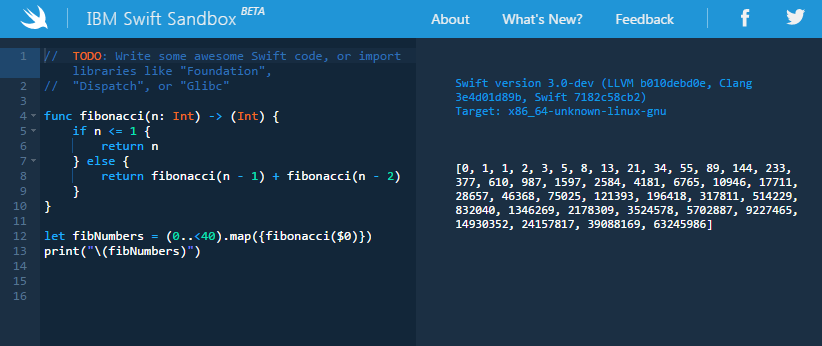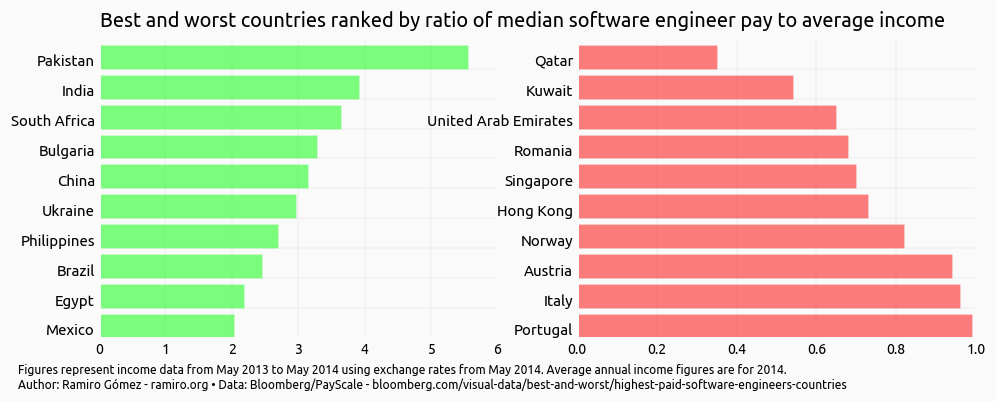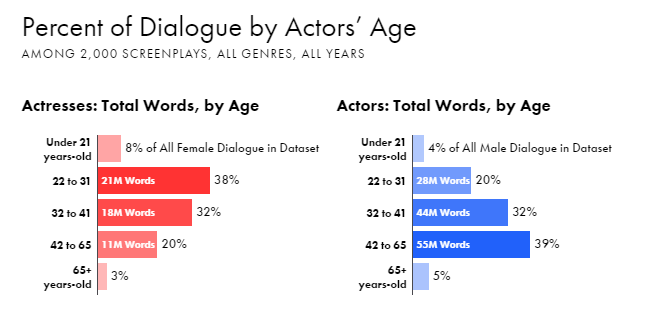Sections
Serverless and IoT
[avatar user=”malm” size=”small” align=”left” link=”file” /]
Rob Charlton’s recent talk at CloudExpo Europe on Devops for the Internet of Things is a great starting point for understanding the important role that serverless cloud technology will play in the IoT space. It includes a walk-through example of a fully-formed Angular JS web application built upon Amazon’s Lambda, API Gateway, DynamoDB and S3 stack.
Slides from my talk at @CloudExpoEurope on Serverless Architecture and how it relates to the Internet of Things: https://t.co/ne0KHRGztE
— Rob Charlton (@charltones) April 13, 2016
A recent PyData Amsterdam talk on bringing a Python data stack into production likewise emphasises the importance of serverless. In this case the environment is more diverse incorporating Scala, R, Docker and Jenkins:
Both these examples share in common a focus on the practical hands-on code-oriented reality of deploying this sort of technology. It’s a level of detail that is often missing from the esoteric world of IoT industry consortia:
In consumer #IoT, are there actually more interoperability consortia than things worth interoperating?
— Ari Jaaksi (@jaaksi) April 14, 2016
Artificial Intelligence
- This video of Yann LeCun’s Colloquium talk at CERN on the Future of AI is a fascinating if rather long deep dive into the progress so far and likely future of deep learning:
- TensorFlow is not the most approachable and demands a lot of contextual knowledge of deep learning details before it can really be used effectively. TFLearn is an attempt to provide a simplification layer over TensorFlow and looks like it could become an important tool in its own right in due course. The documentation and example set look pretty comprehensive. The examples on RNN sequence generation even look comprehensible:
TFlearn is a modular and transparent deep learning library built on top of Tensorflow. It was designed to provide a higher-level API to TensorFlow in order to facilitate and speed-up experimentations, while remaining fully transparent and compatible with it.
- Artificial Intelligence is “shedding new light on the origins of the Bible“. The team involved:
developed machine learning algorithms that could compare and contrast the shape of the ancient Hebrew characters in order to identify statistically distinct handwritings.
Chatbots
- The rise of text-based chatbot technology is now very much part of the zeitgeist with mainstream news outlets from the Economist to the BBC talking them up in terms they hope will be understandable but actually end up sounding somewhat hackneyed:
Recent developments in artificial intelligence, such as deep learning and neural networks, have allowed chatbots to learn from data sets and mimic the way the human brain works.
- An eventual end-goal for chatbots is literally to be able to interface with them through voice alone. This Wired review of the state of long-form voice transcription suggests that the technology although much improved still has work to do to catch up with human performance. The article outlines some of the reasons why:
“If you have people transcribe conversational speech over the telephone, the error rate is around 4 percent,” says Xuedong Huang, a senior scientist at Microsoft, whose Project Oxford has provided a public API for budding voice recognition entrepreneurs to play with. “If you put all the systems together—IBM and Google and Microsoft and all the best combined—amazingly the error rate will be around 8 percent.” Huang also estimates commercially available systems are probably closer to 12 percent.
- One such example of a proposition that is using voice transcription today is the Amazon Echo backed by the Alexa platform. This week there is news of an app called Roger that allows you to experience Alexa using your smartphone as a proxy for Echo. The app doesn’t seem to be available on the UK App Store.

Privacy and Security
- Fingerprints to be “used as alternative currency” in Japan in the run up to the 2020 Olympics in a mass experiment that would appear to involve foreign tourists.

- Trust and security fears right across the globe are “holding back the Internet of Things“. And they have every right to be cautious when something as important as the UK smart meter rollout is considered flawed enough to warrant intervention by GCHQ:
GCHQ barged in after spooks cast their eyes over the plans and realised that power companies were proposing to use a single decryption key for communications from the 53 million smart meters that will eventually be installed in the UK. … The security flaws would have been particularly catastrophic as the UK’s ‘Rolls Royce’ (i.e. unnecessarily expensive) smart metering system doesn’t just automate meter reading. It enables power companies to engage in power management and even to cut people off remotely if they haven’t paid their bills.
- US authorities have demanded anonymised data on nearly 12 million Uber riders as revealed by the company in its first ever transparency report:
From July 2015 to December, US state and city regulators required Uber to hand over data that “affected” 11.6 million riders and 583,000 drivers.
Cloud Computing
- Microsoft under Satya Nadella is playing a deeper game than many anticipated when he replaced Steve Ballmer. It’s still all about developers, developers, developers but focussed on Azure not Windows:
It’s a two-point game plan: Give Microsoft developers basically whatever they want, to write software any way they want, for whatever operating system they want. And then, turn that goodwill into a gentle, but effective, sales funnel towards the Microsoft Azure cloud.

- Opinion piece on why “DevOps is dead” killed by the inexorable rise of “NoOps” SaaS propositions.
Apps and Services
- “Goodbye Medium” was an interesting post exploring why if you’re serious about blogging, you might not want to be on Medium. However, it’s been inexplicably deleted by the author.
- On the subject of blogs, Facebook is struggling to deal with a steep decline in original content sharing on its network as opposed to sharing links according to The Information. Interestingly, the trend is even more exaggerated in Millennials. Arguments given as to why include the sense that the site has become more impersonal and less intimate as advertisers and millions of new users have poured in:
Facebook is trying to confront a double-digit decline in the most important kind of content that people post on the social network. It’s been working on ways to reverse the slide, with limited success that could have long term implications for the health of its News Feed.
- Perhaps that explains Facebook’s interest in promoting and concentrating on its future focus areas during its recent F8 developer conference which revealed a 10-year roadmap of “basically lasers, bots and VR“.
- The BBC have unveiled an iPlayer app for kids.
BBC launches iPlayer Kids app https://t.co/1jq7vWeM3h
— Ralph Rivera (@RalphRivera) April 12, 2016
Autonomous Vehicles
- Tesla self-driving cars have clocked 47 million miles in 6 months vastly more than Google’s vehicles:
Over 47M miles driven on Autopilot, the more you drive, the more we'll learnhttps://t.co/REuR12rMHH
— Tesla (@TeslaMotors) April 9, 2016
- In another milestone for autonomous vehicles, news of a fleet of trucks that “just drove themselves across Europe“.
Devices and Manufacturers
- The Telegraph latch on the cuteness potential of RoBoHoN, Sharp’s pocket-sized “robot smartphone” :
Software
- The story of the man who “accidentally deleted his entire company with one line of bad code” did all the rounds this week across all the mainstream media fanning out from the original forlorn StackOverflow post. In this case it smelled like and eventually proved to be a hoax:
https://twitter.com/zackwhittaker/status/721459685967196160
- And a good hoax at that. The unfortunate user in question was supposed to have fallen victim to an Ansible template gotcha in an “rm -rf” command, the dreaded “delete everything” on a Unix system. It still can and does happen though so the advice given here is super important to internalize:
Do not manually enter an “rm -rf” command that has a slash in the argument list. Just don’t do it. Ever. If you think you need to do it, you aren’t thinking hard enough. Instead, change your working directory to the parent of the directory from which you intend to start the removal, so that the target of the rm command does not require a slash.
- InfoQ article on Swift highlights a very neat cloud-based sandbox environment provided by IBM for trying out the language. Small code samples (gists) can be shared as with this one I pulled together as a learning resource which is available online here:
- Here’s a good incentive for getting started with Swift:
Google is considering making Swift a “first class” language for Android, while Facebook and Uber are also looking to make Swift more central to their operations.
- Sticking with the theme of learning new languages, here is a useful FOSS Asia presentation Julia programming language. It’s less clear what benefit Julia offers if (say) you already have some familiarity with IPython notebook and the Python data stack:
- Python notebook exploring software engineer salaries in different countries uses a nice combination of lxml for web scraping and pandas, numpy and matplotlib for data analysis to generate graphs like the following from publicly available data:
Science and Society
- Canadian PM Justin Trudeau’s explanation of quantum computing is admirable but the initial amused reaction was telling. Surely we should demand this level of basic scientific competence in all our political leaders?
- Martin Ford’s “Letter to America” aimed at the incoming US President whoever they are, is an example in kind. Technological unemployment is almost certain to become a mainstream concern over the next couple of presidential cycles. It’s vital to ask the question as to what we will do in political terms to address. Whether our leadership is sufficiently ‘agile’ to take up the challenge is another matter:
If the automation of jobs proves to be a relentless trend, then there will eventually be no alternative but to consider unconventional solutions–perhaps including a guaranteed basic income for all Americans. Needless to say, the implementation of such policies would present a staggering political challenge. Given that there is no reliable way to predict when the disruption will occur, or how fast it will unfold, it is imperative that planning begin well in advance. A logical first step would be to initiate some experimental pilot programs designed to test various policy responses. The data generated by these programs would be invaluable in eventually crafting an effective national policy to adapt our economy and society to the implications of disruptive technology.
- This Nick Bostrom paper on the Fermi Paradox suggests that we should be pleased we haven’t encountered aliens yet and long may it continue. Meanwhile Rolling Stone previews the “$100 million hunt for alien life“ bankrolled and endorsed by a colourful mix absolutely intent on finding it.

- Staying on topic, this Quora post offers some of the more interesting solutions to the Fermi Paradox. One of the reasons provided is that sufficiently advanced civilisations, far from wanting to quest into intergalactic space, end up turning in on themselves becoming self-absorbed by technologies like VR.
- New Republic on the enduring mystery of The Hum “a mysterious auditory phenomenon that, by some estimates, 2 percent of the population can hear” is a good examination of the limits of our current scientific knowledge.
Startups and Management
- Jeff Siebert, director of product at Twitter outlines his thoughts on the M&A process. Basically don’t think about it too much:
The key takeaway is it’s incredibly unlikely for a deal to happen. Ever.
- HBR on the proof that good managers really do make a difference and the evidence is available for other employees to examine for themselves if it holds true for their workplace:
It appears that the most successful companies are managed well in part because they hire the best managers and in part because they find ways to let the less talented ones move on. And attracting top managers means making sure they are well compensated for their efforts, but perhaps not so much that other workers get left behind.
Panama and Inequality
- The aftershocks from the Mossack Fonseca leak continue to ripple through global politics. A key source of outrage is the sense that we’re not all in it together and that the super-rich and their allies are at once outside of the system that applies to the rest of us and using their power and influence to keep things that way. Or, as this scorching Guardian post puts it, “the 1% hide their money offshore – then use it to corrupt our democracy“:
In my politics lessons, we were taught that Britain was a representative democracy. But what 30 years of plutocracy have brought is an era of un-representative democracy. With a few exceptions, our politicians no longer resemble, nor do they work for us. Amid a crisis in the rental market, you have a housing minister, Brandon Lewis, who runs a private rental portfolio. You have a former investment banker, Sajid Javid, now claiming to do his best by the steel industry. And you have a super-rich prime minister who vows he’ll take on tax havens, all the while blocking any serious attempt to do so.
- Another data point highlighting the relative ease with which democracy can be ‘bought’ provided you have enough money is this WashPo analysis suggesting that a small number of the 1% are bankrolling the candidates running in the US presidential race. Democracy in action folks:
A small core of super-rich individuals is responsible for the record sums cascading into the coffers of super PACs for the 2016 elections, a dynamic that harks back to the financing of presidential campaigns in the Gilded Age. Close to half the money — 41 percent — raised by the groups by the end of February came from just 50 mega-donors and their relatives
- Meanwhile in China, the whole affair has effectively been removed from the Internet by a Chinese regime that is itself implicated with involvement according to China Uncensored:
Culture
- Polygraph’s data analysis of the corpus of Hollywood screenplays reveals the truth behind the assertion that Hollywood favours older white male actors. The lion’s share of dialogue is given over to male Boomers and Gen X’ers:
we Googled our way to 8,000 screenplays and matched each character’s lines to an actor. From there, we compiled the number of words spoken by male and female characters across roughly 2,000 films, arguably the largest undertaking of script analysis, ever.
- The BBC ask “What happened to the Good Life?” inspired by a popular book on self-sufficiency that gave rise to a movement and a famous 1970’s television series.
“People sold up but then couldn’t make it work. It was probably harder than they thought it was going to be.”

- Instead of being liberated by self-sufficiency, many became enslaved by day jobs that have grown for many to fill their entire horizon. Willingly so, it seems, according to this Economist article asking why we work so hard. Perhaps the coming age of technological unemployment will have an upside if it forces people to consider this question in a much more fundamental way:
“Our jobs have become prisons from which we don’t want to escape”





